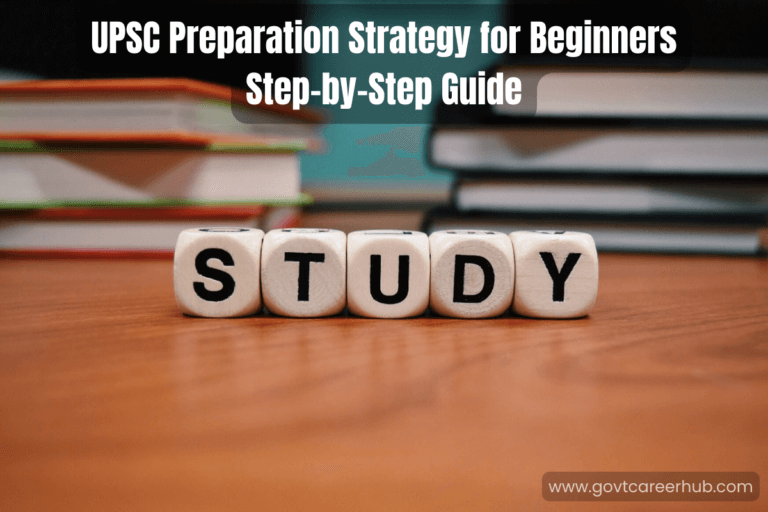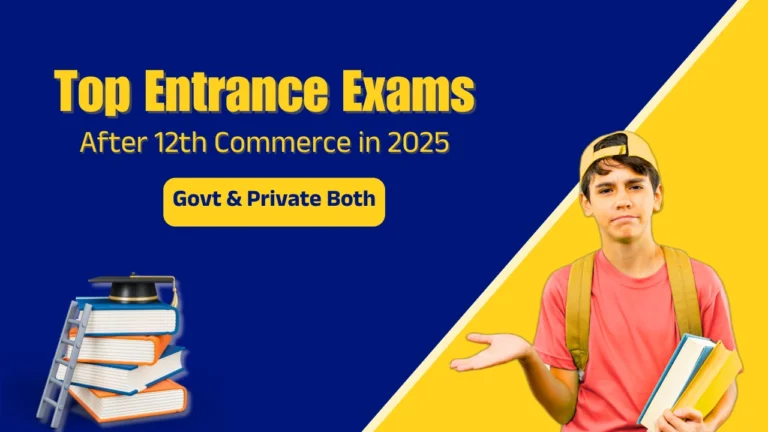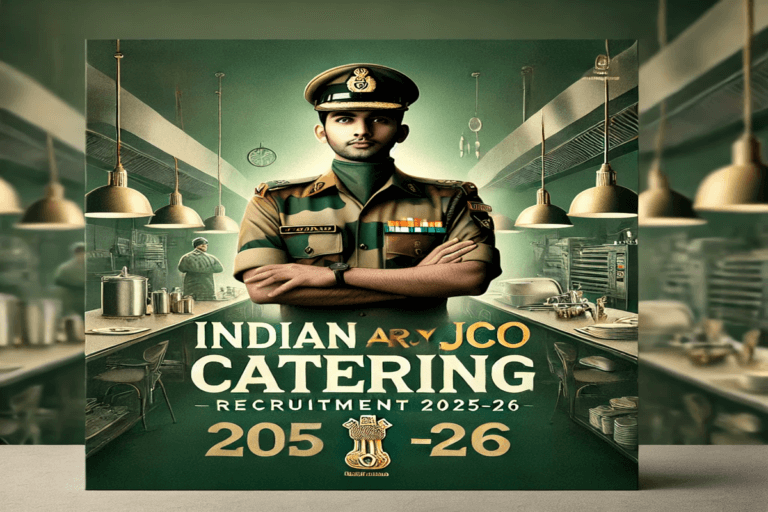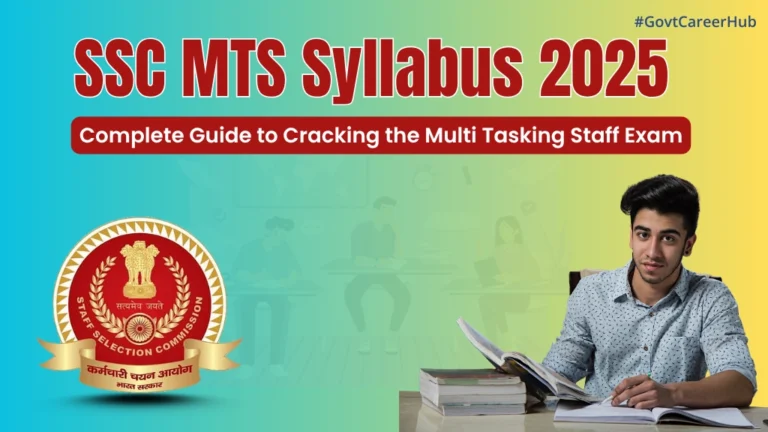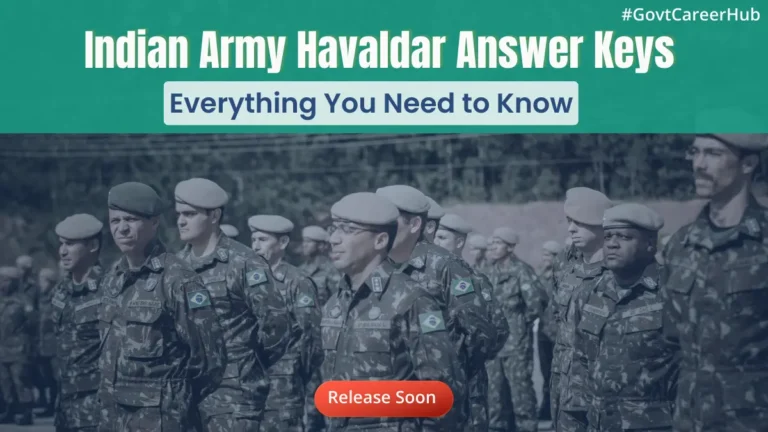Indian Army Havildar Education Syllabus 2025: Complete Exam Pattern & Guide
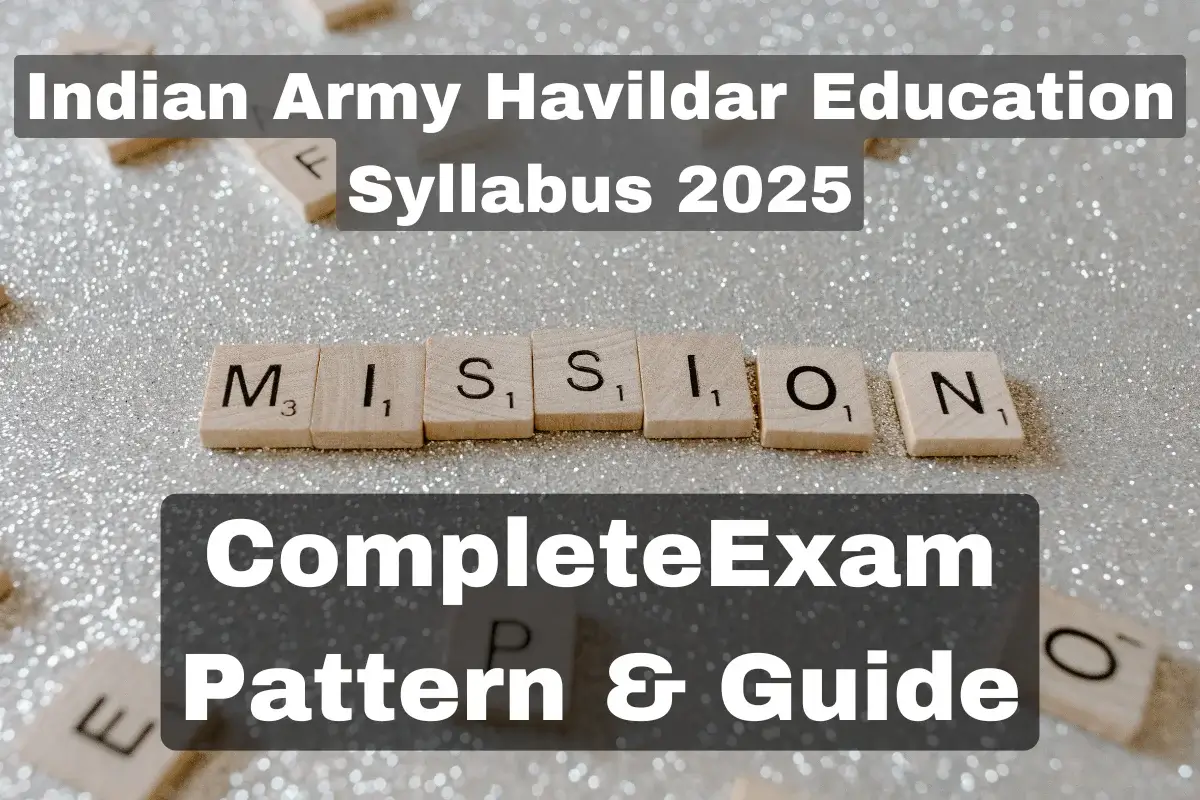
Last Updated: August 4, 2025 at 9:17 pm
Introduction
The Indian Army offers numerous opportunities for individuals seeking a rewarding career in defense services. One such position is that of a Havildar Education, a non-commissioned officer responsible for imparting education and training to army personnel. For candidates aspiring to join the Indian Army as Havildar Education in 2025, understanding the comprehensive syllabus and exam pattern is crucial for effective preparation.
This guide provides detailed information about the Indian Army Havildar Education Syllabus 2025, covering both Science and Arts streams, to help candidates prepare thoroughly for the upcoming examination.
Indian Army Havildar Education: Role and Responsibilities
Before diving into the syllabus, it’s important to understand the role of a Havildar Education in the Indian Army. Havildars in the education department are responsible for:
- Conducting classes and training sessions for army personnel
- Assisting in the educational development of soldiers
- Managing educational resources and facilities
- Supporting the overall literacy and skill development within the army
These positions are available in both Science and Arts streams, allowing candidates from diverse educational backgrounds to apply based on their qualifications and interests.
Exam Pattern for Indian Army Havildar Education 2025
The selection process for Havildar Education involves written examinations that test candidates’ knowledge across various subjects. The exam is divided into two papers:
Paper 1: Common for Both Science and Arts Streams
- General Knowledge (25 questions)
- English (25 questions)
- Total marks: 50
- Passing marks: 20
Paper 2: Stream-Specific
- For Science Stream: Mathematics, Physics, Biology, Chemistry, and Computer Science
- For Arts Stream: Mathematics, History, Geography, Political Science, and Economics
- Total questions: 50
- Total marks: 50
- Passing marks: 20
Each paper carries equal weightage, and candidates must secure the minimum passing marks in both papers to qualify.
Detailed Syllabus for Indian Army Havildar Education (Science Stream)
General Knowledge
The GK section covers a wide range of topics including:
- Indian and neighboring countries’ history, culture, and geography
- Prominent personalities and “who’s who”
- Abbreviations, sports, awards, and prizes
- Indian Armed Forces
- Continents and subcontinents
- Inventions and discoveries
- The Constitution of India
- International organizations
- Books and authors
- Recent important events in India and worldwide
- Current affairs
English
The English section tests candidates’ language proficiency through:
- Comprehension
- Parts of speech (articles, nouns, pronouns, adjectives, prepositions, conjunctions)
- Verbs and tenses (present/past forms, simple/continuous forms, perfect forms)
- Sentence structure and types
- Direct and indirect speech
- Active and passive voice
- Idioms and phrases
- Synonyms and antonyms
- One-word substitutions
Mathematics
The mathematics syllabus includes:
- Algebra
- Matrices and determinants
- Analytical geometry
- Trigonometry
- Integral and differential calculus
- Probability and statistics
- Number systems
- Fundamental arithmetical operations
- Mensuration
- Area, volume, and surface area calculations
Physics
The physics section covers:
- Physical properties and states of matter
- Mass, weight, volume, density, and specific gravity
- Archimedes’ principle and pressure barometers
- Motion, velocity, and acceleration
- Newton’s laws of motion
- Force, momentum, and parallelogram of forces
- Stability, equilibrium, and gravitation
- Work, power, and energy
- Heat and its effects
- Sound waves and their properties
- Reflection, refraction, spherical mirrors, and lenses
- Magnetism and electricity
- Ohm’s law and simple electrical circuits
Chemistry
The chemistry syllabus includes:
- Physical and chemical changes
- Elements, mixtures, and compounds
- Symbols, formulae, and simple chemical equations
- Laws of chemical combination
- Properties of air and water
- Preparation and properties of hydrogen, oxygen, nitrogen, and carbon dioxide
- Oxidation and reduction
- Acids, bases, and salts
- Carbon and its forms
- Natural and artificial fertilizers
- Atomic structure
- Atomic, equivalent, and molecular weights
- Valency
Biology
The biology section covers:
- Basic biology and life processes
- Study of birds and human beings
- Food, health, and balanced diet
- Ecological balance and living resources
- Habitat, organisms, and adaptation
Computer Science
The computer science syllabus includes:
- Computer systems and memory concepts
- Input/output devices
- Operating systems and their functions
- Windows, MS Word, MS PowerPoint, and MS Excel
Detailed Syllabus for Indian Army Havildar Education (Arts Stream)
The Arts stream follows the same pattern for Paper 1 (General Knowledge and English) but differs in Paper 2 with the following subjects:
Mathematics
The mathematics syllabus for Arts stream includes:
- Algebra
- Matrices and determinants
- Analytical geometry
- Trigonometry
- Number systems
- Fundamental arithmetical operations
- Mensuration
- Area, volume, and surface area calculations
History
The history section covers:
- Indian history from ancient to modern times
- Indian freedom struggle
- Post-independence issues
- World history including World Wars I and II
- Industrial Revolution
- Colonization and decolonization
- Economic depression
- Political philosophies like communism, capitalism, and socialism
Geography
The geography syllabus includes:
- Geomorphology and climatology
- Oceanography and biogeography
- Environmental and economic geography
- Population and settlement geography
- Regional planning models
- Theories and laws in human geography
- Geography of India (physical setting, resources, agriculture, industry, etc.)
- Cultural setting and contemporary issues
Political Science
The political science section covers:
- Political theory and thought
- Indian government and politics
- Public administration
- International relations
- Political development and modernization
- Power, authority, and ideology
- International law and the UN
- Indian foreign policy
Economics
The economics syllabus includes:
- Basic economic concepts
- Macro and microeconomic policies
- Development versus growth
- India’s ranking in various indices
- Poverty and eradication programs
- Demographic issues
- Fiscal policy
Preparation Tips for Indian Army Havildar Education Exam 2025
- Create a study schedule: Allocate sufficient time for each subject based on your strengths and weaknesses.
- Focus on fundamentals: Ensure you have a strong grasp of basic concepts before moving to advanced topics.
- Practice previous years’ question papers: This will help you understand the exam pattern and the types of questions asked.
- Stay updated on current affairs: Read newspapers and magazines regularly for the General Knowledge section.
- Improve language skills: Practice reading comprehension and grammar exercises for the English section.
- Solve mathematical problems regularly: Mathematics requires consistent practice to build problem-solving skills.
- Make concise notes: Create short notes for complex topics for quick revision before the exam.
- Join a study group: Collaborate with fellow aspirants to discuss difficult concepts and share resources.
Frequently Asked Questions (FAQs)
Conclusion
The Indian Army Havildar Education examination is competitive and requires thorough preparation across multiple subjects. By understanding the syllabus and exam pattern for 2025 and following a structured study plan, candidates can increase their chances of success. Remember that consistency and dedication are key to cracking any competitive examination.
Start your preparation early, focus on building strong fundamentals, and practice regularly to achieve your goal of becoming a Havildar Education in the Indian Army. Good luck with your preparation!

